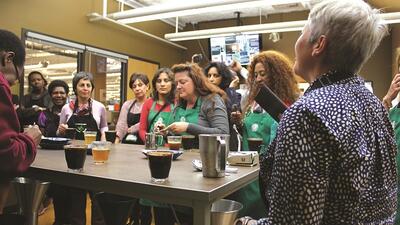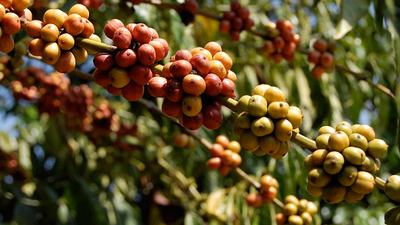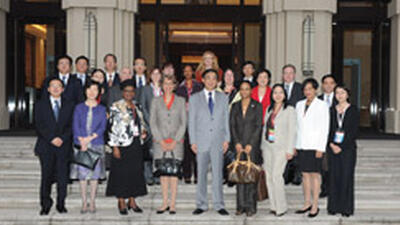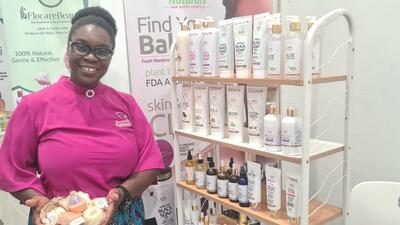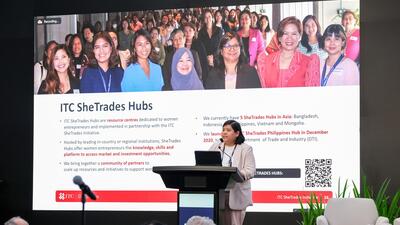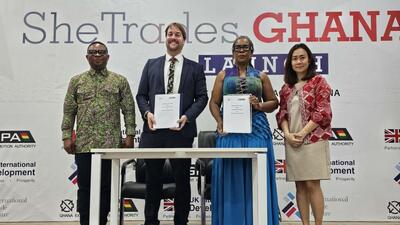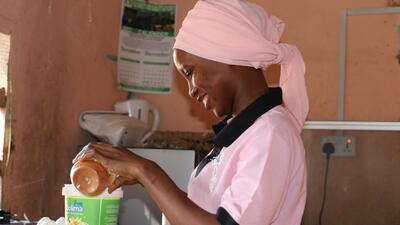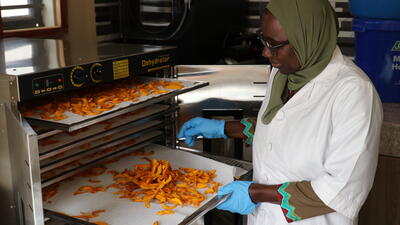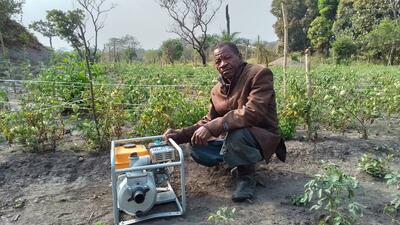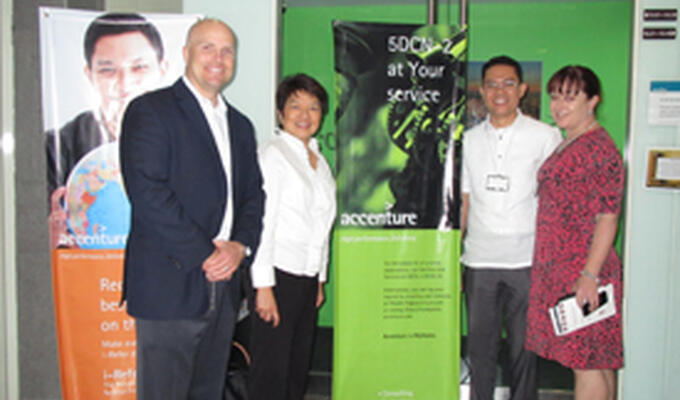
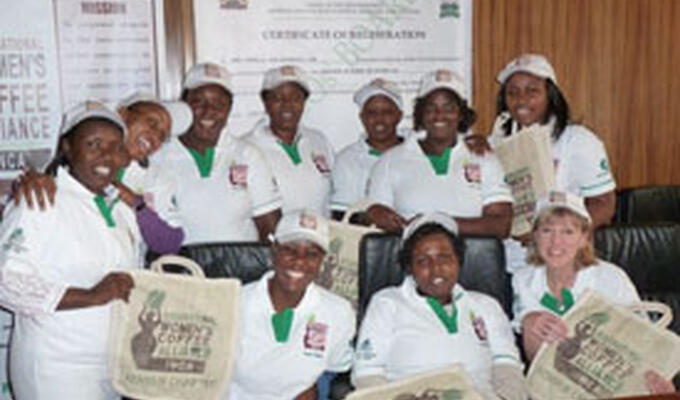
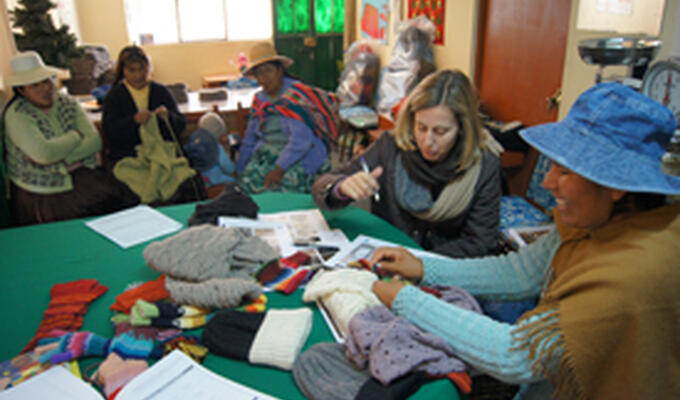
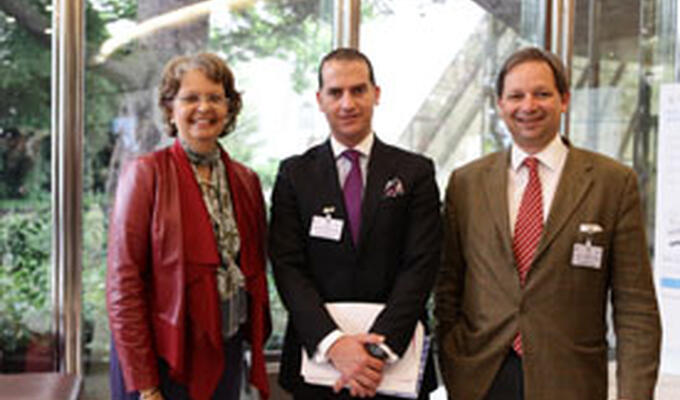
Working with partners to empower women and power trade
ITC’s Women and Trade Programme aims to help women entrepreneurs and women in export-oriented value chains derive greater economic benefit from their participation in trade. Phase I runs from 2010 to 2012 with activities in Africa, Latin America and the Asia-Pacific region. To ensure all programmes, projects and activities are drafted with the inclusivity of women in mind, ITC has adopted a Gender Mainstreaming Policy and internal quality control procedures that question how indicators of success will capture outcomes for women.
In Africa, ITC is working in Burundi, Kenya, Rwanda, the United Republic of Tanzania and Uganda with the International Women’s Coffee Alliance to establish legally incorporated women’s associations in coffee. These associations act as conduits for trade-related technical assistance, such as improving agricultural practices. As well as promoting trade, women members advocate on issues that impede trade, such as land rights and access to finance. Other programmes connect women working with alpaca wool in Peru and in silver jewellery in Mexico with buyers in North American markets. These include training in design, preparing for participation in trade missions and leveraging trade agreements. As a result of the programmes, increases in sales revenues have been recorded, resulting in rising demand, enterprise expansion and, in some instances, job growth.
During Phase I, the ITC Women and Trade Programme has also worked with partners to establish the Global Platform for Action on Sourcing from Women Vendors and is gearing up to support women visiting the second annual Women Vendors Exhibition and Forum (WVEF) that will take place in Mexico City on 6-7 November 2012. The inaugural meeting in China 2011 brought together 300 buyers, sellers and trade capacity building institutions resulting in sales of US$ 14.8 million during the event and ongoing outcomes for women entrepreneurs in the Buyer Mentor Groups (BMGs). The BMGs are part of the ITC Women and Trade Programme’s 10-year vision and aim to build relationships that bear fruit over time. In addition to matching buyers and sellers, participants identify the constraints women entrepreneurs face in meeting buyers’ requirements. The ITC programme then brings in government representatives who can improve the business environment for women entrepreneurs through better access to transport systems and packaging services or secure certification required to export.
Among the entrepreneurs in the BMGs, Phyllis Johnson of the International Women’s Coffee Alliance says, ‘Our members have sold over 5,000 kilograms of coffee to Walmart through the Priddy Brothers as a result of WVEF. We are in negotiation with a major international hotel chain and have sold coffee produced by women in the Philippines to management consultancy Accenture.’ Alyse Nelson, chief executive officer at Vital Voices, adds, ‘We are looking forward to WVEF in November because we are looking to develop projects with partners that build women’s capacity to sell. We have an extensive business women’s network around the globe with a particular concentration of influence in the Latin America and Caribbean region. We are delighted to join forces with ITC to help women entrepreneurs in our network access new markets.’
The role of national trade promotion organizations is to prepare women for robust participation in buyer-seller meetings. Wong Lai Sum, chief executive officer at MATRADE, explains: ‘We are proud of our Women Exporters Development Programme that has resulted in 39 companies signing RM 100 million.’ The programme offers customized business coaching as well as links to trade finance, market and commercial intelligence leveraging MATRADE's network of 42 offices in 35 cities, including Mexico City.
Cindy Chong, founder and managing director of NCL Solutions Sdn Bhd, one company of the selected companies under MATRADE’s Women Exporters Development Programme, commented: ‘MATRADE has helped me access new markets and expand our potential to sell products. I have been introduced to markets I may not have visited, such as the Middle East and India. The business meetings and exhibitions under the MATRADE umbrella give added credibility to our effort in developing international trade.’
From a corporate perspective, Michael K. Robinson, programme director, Global Supplier Diversity, Integrated Supply Chain at IBM, says, ‘IBM utilizes diverse suppliers who can provide value to our supply chain in every region in which we operate. IBM, a member of WEConnect International, hopes that through the launch of WEConnect Mexico, the pool of businesses that are certified as women-owned will expand, growing the pool of those we can source from.’ IBM's corporate view is shared by women including Elizabeth Vazquez, co-founder and chief executive officer of WEConnect International, and Freda Miriklis, president of the International Federation of Business and Professional Women, who are working to build business with women, for women.
Playing its part in this development, ITC is working with partners to draft a Phase II Women and Trade Programme that will run from 2013-2015. The focus will remain on assisting women to succeed in trade, leveraging support received in Phase I principally from the governments of the United Kingdom, Norway and Finland.
Success in the Philippines
Pacita Juan, co-chair and president of the Philippine Coffee Board, attended the Women Vendors Exhibition and Forum in Chongqing, China in 2011 looking for opportunities for women in coffee. Discussions started in earnest. Following a six-month period in which Juan worked to understand Accenture’s requirements and match them with roasted coffee supplied by women in the local market, Monique Ward, procurement lead for APAC at Accenture visited the Philippines in April 2012 accompanied by Al Williams, Accenture's chief procurement officer.
Accenture is working to change its call tenders to highlight interest in receiving bids from companies that are owned, operated and controlled by women. In the Philippines, Accenture met a number of women business leaders and began to understand the opportunities to diversify sourcing in many sectors. Discussions are underway to source muscovado sugar and gift baskets from women entrepreneurs. The link to Accenture’s core business in management consultancy is the company’s staff of 25,000 in the Philippines, and it has plans for significant expansion. ’Muscovado sugar is better for health, it is the perfect addition to coffee and is also produced by Filipina women entrepreneurs,’ says Juan. ‘Accenture is now purchasing roasted coffee from our suppliers and the Philippine Coffee Board is thrilled to be opening up new markets to its women entrepreneurs.’
ECHOstore sustainable lifestyle, a women-founded and run store supplies Accenture's coffee and natural sugar needs. ECHOstore also makes gift baskets containing food products sourced from women-led groups, which has also attracted Accenture's procurement hubs as gift-giving is a year-round activity in the Philippines. ECHOstore's website is www.echostore.ph.




